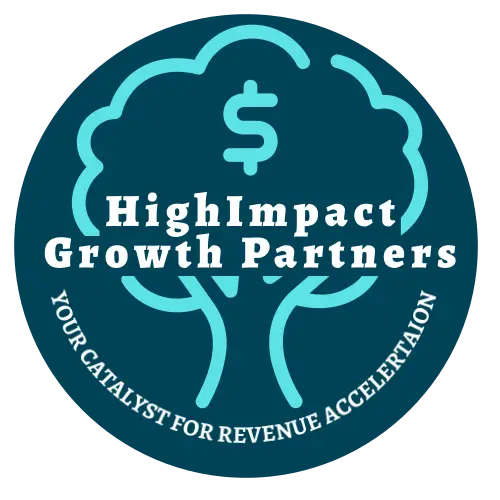The Power of Personal and Professional Growth: The Key to Unlocking Success
In a Nutshell:
- Embrace a Growth Mindset: View challenges as learning opportunities to foster resilience and adapt in your personal and professional journey.
- Build Emotional Intelligence: Develop awareness of your emotions and those of others to enhance interpersonal relationships and navigate workplace dynamics effectively.
- Set SMART Goals: Establish Specific, Measurable, Achievable, Relevant, and Time-bound goals to focus your efforts and track progress for personal and professional success.
- Cultivate a Supportive Network: Surround yourself with like-minded individuals for encouragement and insights that contribute to your growth and development.
- Prioritize Continuous Learning: Actively seek out opportunities to expand your skills and knowledge, staying ahead in a rapidly evolving work environment.
In today’s fast-paced and competitive world, personal and professional growth has never been more crucial in unlocking success. With constant changes in technology, markets, and global trends, it is essential for individuals to continuously develop themselves both personally and professionally to stay ahead of the game. Whether it be expanding knowledge and skills in their industry or cultivating a growth mindset and emotional intelligence, investing in oneself is the key to reaching one’s fullest potential. In this article, we will explore the power of personal and professional growth as an integral component in achieving success in all aspects of life. From enhancing leadership abilities to fostering resilience in the face of challenges, we will delve into how self-improvement can lead to greater fulfillment and accomplishments. Join us on this journey towards self-discovery and transformation as we uncover the limitless possibilities that come with prioritizing personal and professional growth.
The Importance of Self-Awareness in Personal Growth
Self-awareness is a critical component of personal growth as it involves understanding one’s own thoughts, emotions, and behaviors. By being self-aware, individuals are able to recognize their strengths and weaknesses, allowing them to work on areas that need improvement. This introspection also helps people gain a deeper understanding of their values, beliefs, and goals, which in turn guides their actions towards personal development.
In terms of professional growth, self-awareness plays a significant role in career advancement. Knowing one’s strengths and passion can help individuals make informed decisions about their career path and ensure they are pursuing roles that align with their skills and interests. Additionally, being aware of one’s communication style, emotions, and reactions in the workplace can lead to better relationships with colleagues and ultimately enhance overall job performance.
Overall, self-awareness is the foundation of personal and professional growth as it enables individuals to identify areas for improvement and make necessary changes to reach their full potential. By developing self-awareness through reflection, feedback from others, mindfulness practices, individuals can continue evolving both personally and professionally to achieve success in all aspects of life.
Developing a Growth Mindset for Professional Success
Developing a growth mindset is essential for professional success, as it allows individuals to approach challenges and setbacks with resilience and a positive attitude. Instead of viewing failures as permanent barriers, those with a growth mindset see them as opportunities for learning and improvement. By constantly seeking out ways to develop new skills, expand knowledge, and adapt to change, individuals can position themselves for long-term success in their careers.
In addition to fostering personal development, a growth mindset also enhances emotional intelligence. This skill is crucial in navigating interpersonal relationships in the workplace and effectively communicating with colleagues and clients. By actively working on developing emotional intelligence through self-awareness, empathy, and social skills, professionals can build stronger connections with others while also improving their own well-being.
Investing time and effort into personal and professional growth not only benefits individuals in their current roles but also sets them up for future opportunities. By cultivating a growth mindset alongside continuous learning efforts, professionals can stay relevant in an ever-evolving job market while also unlocking their full potential for success both personally and professionally.
Strategies for Continuous Learning and Skill Development
Continuous learning and skill development are essential for personal and professional growth. One effective strategy is to set specific goals for oneself, whether it be acquiring a new skill or mastering existing ones. By setting clear objectives, individuals can focus their efforts on areas that will help them progress in their careers and personal lives. Additionally, seeking out opportunities for further education, such as workshops, seminars, or online courses, can provide valuable knowledge and insights that can enhance one’s skills and expertise.
Another important strategy for continuous learning is to seek feedback from mentors, peers, or supervisors. Constructive criticism can help individuals identify areas of improvement and develop action plans to address them. Additionally, networking with others in the industry or joining professional organizations can provide opportunities for mentorship and collaboration that can facilitate growth. By actively seeking out feedback and guidance from others, individuals can continuously improve their skills and stay relevant in today’s rapidly changing world.
Building Resilience and Overcoming Challenges in Growth
Building resilience and overcoming challenges in growth is an essential aspect of personal and professional development. In order to succeed in today’s ever-changing landscape, individuals must be able to bounce back from setbacks and adapt to new situations with grace and determination. By building resilience, individuals can weather the storms that come their way and emerge stronger on the other side. This ability to overcome challenges is a key factor in achieving success both personally and professionally.
One way to build resilience is by cultivating a growth mindset, which involves viewing challenges as opportunities for growth rather than obstacles. This shift in perspective allows individuals to approach difficulties with a sense of optimism and determination, ultimately leading to greater levels of success. Additionally, developing emotional intelligence can also help individuals navigate challenging situations effectively by understanding their own emotions and those of others around them. By honing these skills, individuals can face adversity head-on and emerge stronger and more resilient than before.
In conclusion, building resilience and overcoming challenges in growth is crucial for personal and professional success. By investing in one’s own personal development through cultivating a growth mindset and emotional intelligence, individuals can position themselves for long-term success in an ever-evolving world. It is through facing adversity with strength and determination that individuals can unlock their true potential and achieve their goals.
The Role of Emotional Intelligence in Personal and Professional Relationships
Emotional intelligence plays a significant role in both personal and professional relationships. It involves being aware of one’s own emotions and understanding how they can impact interactions with others. By developing emotional intelligence, individuals are better equipped to manage conflict, communicate effectively, and build stronger connections with those around them. In personal relationships, emotional intelligence allows for empathy, compassion, and effective problem-solving which are essential for maintaining healthy and fulfilling connections.
In professional settings, emotional intelligence is equally important as it enhances leadership skills, decision-making abilities, and overall team dynamics. Leaders who possess high emotional intelligence are more adept at motivating their team members, managing conflicts constructively, and fostering a positive work environment. Additionally, employees who exhibit emotional intelligence tend to have better working relationships with colleagues, clients, and superiors which can lead to increased job satisfaction and career progression. Overall, cultivating emotional intelligence is key to nurturing successful personal and professional relationships in today’s dynamic world.
Setting SMART Goals for Personal and Professional Growth
Setting SMART goals is a key component in achieving personal and professional growth. SMART goals are Specific, Measurable, Achievable, Relevant, and Time-bound. By setting clear and specific goals, individuals can focus their efforts on what truly matters to them and ensure that they are moving in the right direction. Measurable goals allow individuals to track their progress and make adjustments as needed to stay on course towards achieving their objectives. Additionally, setting achievable and relevant goals ensures that individuals are setting themselves up for success by making sure their goals align with their values and long-term aspirations. Finally, time-bound goals provide a sense of urgency and accountability, motivating individuals to take action now rather than procrastinating.
Personal growth involves expanding one’s knowledge, skills, mindset, and emotional intelligence. This could include pursuing further education or training in a particular area of interest or developing better communication skills or leadership abilities. Professional growth focuses on advancing one’s career through gaining new experiences or taking on new challenges within their field. This could involve seeking promotions or raises at work or networking with other professionals to expand opportunities for advancement. Both personal and professional growth go hand-in-hand in helping individuals reach their fullest potential by continuously evolving and adapting to change in order to stay competitive in today’s ever-changing world.
In conclusion, setting SMART goals for personal and professional growth is essential for unlocking success in today’s fast-paced environment. By investing time and effort into developing oneself both personally and professionally, individuals can enhance their knowledge base, skill set, mindset, emotional intelligence – all while staying ahead of the game. Whether it be through further education/training opportunities or actively seeking out new challenges within one’s career field – the power of personal/professional growth lies in the ability for individuals to continuously evolve & adapt themselves towards fulfilling potentials.
Cultivating a Supportive Network for Personal and Professional Development
Cultivating a supportive network is essential for personal and professional development. Surrounding oneself with like-minded individuals who are also committed to growth can provide encouragement, motivation, and valuable insights. Whether it be through networking events, mentorship programs, or online communities, having a strong support system can help individuals navigate challenges and seize opportunities for learning and advancement.
Furthermore, a supportive network can offer feedback and constructive criticism that is necessary for self-improvement. By seeking advice from those who have more experience or different perspectives, individuals can gain new ideas and approaches that can fuel their personal and professional growth. Additionally, being part of a supportive community can foster accountability and push individuals to set ambitious goals and strive towards continuous improvement in all aspects of their lives.
In conclusion, building a strong support system is crucial for unlocking success in today’s ever-changing world. By surrounding oneself with positive influences who share similar values of growth mindset and lifelong learning, individuals can cultivate the skills they need to thrive personally and professionally. Investing in relationships that nurture personal development will ultimately lead to greater achievements and fulfillment in both one’s career path as well as overall quality of life.




